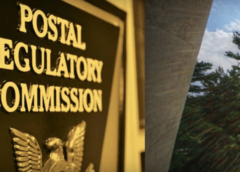As reported on June 15 by Government Executive, a bill passed by the House of Representatives could reverse precedent and restrict a government agency’s latitude in interpreting and applying the statutes it’s charged with implementing. As stated in the article,
“The Separation of Powers Restoration Act (HR 288) would allow federal courts to review all aspects of a law’s implementation without deferring to a federal agency’s interpretation of what the statute allows it to do. That Supreme Court established that precedent, known as Chevron deference, in 1984 and federal courts have since leaned on it in thousands of cases when determining whether agency actions were lawful.”
Background

For the layperson to grasp the potential impact of HR 288, a brief background on the case is necessary. As explained by Oyez.org, the Chevron case (Chevron USA, Inc. v. Natural Resources Defense Council, Inc.) revolved around the question
“Does the Clean Air Act permit the EPA to define the term ‘stationary source’ to mean whole industrial plants only, which allows plants to build or modify units within plants without the permit required under the Act?”
As Oyez explains the facts of the case:
“The Clean Air Act (the Act) required states that had not yet achieved national air quality standards to establish a permit program regulating new or modified major stationary sources of air pollution, such as manufacturing plants. The Environmental Protection Agency (EPA) passed a regulation under the Act that allows states to treat all pollution-emitting devices in the same in-dustrial grouping as though they were a single ‘bubble.’ Using this bubble provision, plants may install or modify one piece of equipment without needing a permit if the alteration does not increase the total emissions of the plant. Several environmental groups, including the Natural Resources Defense Council, challenged the bubble provision as contrary to the Act. The US Court of Appeals for the DC Circuit set aside the EPA regulation as inappropriate for a program enacted to improve air quality.”
In the end, answering the question, the Supreme Court ruled
“Yes. Justice John Paul Stevens, writing for a unanimous court, reversed. The Supreme Court held that the bubble regulation was a reasonable interpretation of the term “stationary source” in the Clean Air Act. Congress did not have a specific intention for the interpretation of that term, and the EPA’s regulation was a reasonable policy choice. The regulation also provided reasonable accommodations for the many competing interests affected by the Act. Justices Thurgood Marshall, William H. Rehnquist, and Sandra Day O’Connor did not participate.”
The decision was precedential and formed a doctrine known as “Chevron deference” that’s been used by courts ever since when reviewing how an agency has applied a statute. As Wikipedia explains:
“The doctrine consists of a two-part test applied by the court, when appropriate, that is highly deferential to government agencies: first, whether Congress has spoken directly to the precise is-sue at question, and second, ‘whether the agency’s answer is based on a permissible construction of the statute.’”
Opposition and concern
The doctrine of “Chevron deference” hasn’t been universally popular. Earlier legislative attempts have been made to lessen its impact, and even later Supreme Court justices have criticized its use by both administrative agencies and other courts in reviewing agency actions. Naturally, for their own reasons, politicians dislike Chevron’s deference when it’s used in decisions adverse to their constituents’ (or contributors’) interests. As Government Executive stated, conservatives
“… have repeatedly said Chevron gives too much power to ‘unelected bureaucrats’ to fill in the gray areas of federal statutes and provides excessive latitude for the executive branch to implement rules and regulations. Years of legal precedent, meanwhile, have found that Congress lacks the expertise required to enact laws with certain specificity and therefore intentionally allows agencies some space to interpret the laws it passes. …
“The Supreme Court last month agreed to take up a case seeking to upend Chevron, causing defenders of the precedent to worry the court’s more conservative makeup will overturn it. The case, Loper Bright Enterprises v. Raimondo, involves whether the National Marine Fisheries Service, part of the National Oceanic and Atmospheric Administration within the Commerce Department, can require the fishing industry to pay for the inspectors who monitor fisheries.
“Many legal scholars and consumer advocates have warned over-turning Chevron would neuter agencies by subjecting them to significantly more judicial second-guessing. Lawmakers would be forced to write laws with significantly more detail or risk leaving agencies unable to enforce them. Opponents of Chevron have said the judicial branch should be able to rule on cases with impartiality, rather than being forced to accept federal agencies’ interpretation so long as they are considered reasonable. …
“While the House narrowly approved the bill, an end to Chevron would likely have to come from the Supreme Court. The Senate is unlikely to take up the bill and the White House has threatened a veto. …”
(The article also noted that, on June 14, the House passed HR 277, the Regulations from the Executive in Need of Scrutiny Act of 2023” or the “REINS Act of 2023.” As explained in the bill’s “purpose” section:
“The purpose of this Act is to increase accountability for and transparency in the Federal regulatory process. Section 1 of Article I of the United States Constitution grants all legislative powers to Congress. Over time, Congress has excessively delegated its constitutional charge while failing to conduct appropriate oversight and retain accountability for the content of the laws it passes. By requiring a vote in Congress, the REINS Act will result in more carefully drafted and detailed legislation, an improved regulatory process, and a legislative branch that is truly accountable to the American people for the laws imposed upon them.”)
Any reader who’s gotten this far may wonder why all of this is relevant; the answer is simple: as the regulator of the Postal Service, the Postal Regulatory Commission interprets and applies statutes (primarily Title 39, US Code). As would be expected, some of the commission’s decisions are appealed by the Postal Service or another party, and the court must decide, among other issues, whether the PRC correctly applied the relevant statute. Given the ambiguity of statutory language, legislative history, and past court decisions, the PRC often enjoys Chevron’s deference given its role as the “expert” on the statutory matters it regulates.
If Chevron is overturned and agency decisions become subject to routine judicial review, the wheels of administrative action could slow to a crawl as court calendars fill and years pass awaiting court decision.
If you're on this page, it's likely because you have challenges to find solutions for or a question to answer. Fortunately, you've come to the right place. Click below to download our 2023 Services brochure to learn just how much we have to offer. Leave your name and email if you'd like us to stay in touch.
The brochure is a PDF that will open in a new browser window. Download, read, share, and let us know if you have questions.



